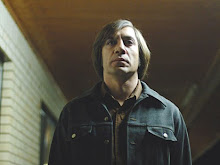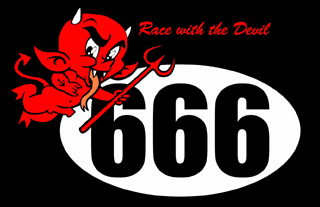 Ice Cube Interview
Ice Cube InterviewAustin Chronicle: Your new single, "Gangsta Rap Made Me Do It," is the rawest and most political thing you've done since The Predator. What made you jump back into political rap?
Ice Cube: In rap the styles change so quick, and political rap became unpopular for a time. The last thing you want in rap is to do songs that nobody's really checking. It started in the Death Row era when political rap went to the back burner. I believe places like Viacom and outlets for the music decided that we had to shy away from the political rap and go more with the gangsterism kind of rap. It was a shift in the taste of the public. Now I think we're past that, and people want to hear messages in the music. I think what's turned people off from rap in the last 10 years is the fact that it's filled with nothing. It's time to go back.
AC: And the political climate of today has something to do with that?
IC: Of course. When the Republicans are in office, everything gets a little more tense. It's a little harder, and you can really feel the pressure of government on top of the people. People want solutions or outlets, so ultimately people want you to say through your lyrics what they can't say.
AC: Are you backing any presidential candidates?
IC: I like Obama. He's a breath of fresh air. He wants to unify the country and not divide it. He just seems like the right guy.
AC: Musically, the new album also seems like it's back to basics. It's dark; it's rugged; it's really raw. Is that a response to what's happening in hip-hop or in the wider music industry?
IC: That's just how I do it. That's how I like it. I like it raw, and that's the name of my album, Raw Footage. That's just my take.
AC: A lot's changed since you did Straight Outta Compton. You're almost 40 years old, you're a father now, and you have a lot more money than you did back then. Does that change the way you approach making music?
IC: Not necessarily, no. All those things are true, but I never think about that when I'm writing lyrics or when I'm in the studio. I'm not thinking about my kids or money or any of that stuff. I'm thinking about being the greatest MC I can be. I think people might perceive things as changing, but I had to roll with the times, the tide of the hip-hop audience, to still be relevant as an MC after all these years. Now I'm at a point where people really want to hear the type of rap that I really love to do. So I'm back in my comfort zone when it comes to making music.
AC: Who do you think dictates what audiences want to hear?
IC: Things change. When Lawrence Taylor played linebacker, he changed the way the position is played. Whenever a new rapper comes out and is as big as Snoop or Eminem, they change the tone or the flavor of the audience. Sugarhill Gang and Grandmaster Flash came out and changed the tone. Run-DMC changed the tone. Beastie Boys came out and changed the tone. Public Enemy came in and changed the tone. N.W.A, Ice-T, and Eazy-E changed the tone. It's always going to be like that.
AC: Do you see any contradiction in recording a raw gansta track one day and shooting a G-rated family film the next?
IC: Music and film are totally different. As far as my music, I don't have A&R or anything like that, so my music is totally self-inspired. Movies are put together by hundreds of people, so it's not one man, one thought. It's a whole different thing. Me acting in a movie is not what I'm becoming; it's a job. Records is what I love to do. I've made a lot of money, and as far as me and my family, we're fine. If I was thinking about that, I wouldn't even be doing records. I'm more concerned with people who ain't got it like me and still live in South Central L.A., like friends and family who are still caught up in the day-to-day grit and grime of life. They don't have a voice. No one speaks for them.
AC: You've been a savvy businessman ever since a contract dispute back in the N.W.A days. What advice would you offer young artists on how to navigate the industry?
IC: You've gotta get someone you trust as far as legal representation. That's the most important thing to have, because you're not going to be able to navigate through this business without having a legal adviser. I think what a young person needs to do is make sure everything makes sense. Sometimes lawyers can talk the way lawyers talk, and you've got to tell them to make it make sense to you. You've got to tell them what you want, because he works for you.
AC: Your new single has a really poignant line: "Look at my life; Ice Cube is a miracle." What do you mean?
IC: It means coming from nothing and turning it into something. To me, everything about my life is a miracle. It's an example of what you can do with yourself. Recognize your opportunities, and don't be scared of failure or what your limitations are.
AC: Do you find that you're more focused on music or film right now?
IC: I go back and forth. I love music, and I love films. That's what I do; my career is carved up between music and movies.
AC: You wrote the screenplay for movies like Friday and Barbershop. Can you talk about the difference between writing songs for an album and writing a screenplay?
IC: Writing a song, especially rap, you can pretty much do freestyle; there are no rules, no boundaries. You have to rhyme, but there's no template. You can go where you want to go. With a movie, you really have to lay it out, and it has to all connect. You have to have your major story and plotlines and subplotlines. It's a more thought-out process. It's more tedious, but having a movie come out is way more satisfying than a record, because it's so much harder to make.


No comments:
Post a Comment